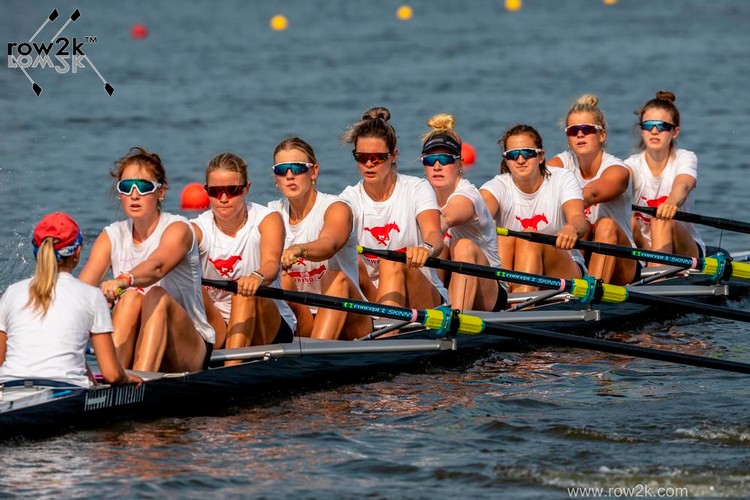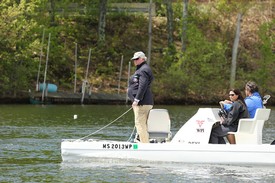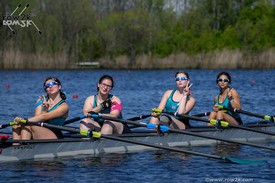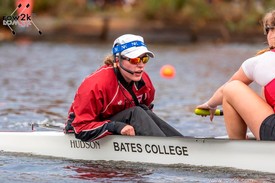
The US Department of Justice joined 10 states and the District of Columbia in an antitrust lawsuit that challenges NCAA restrictions and limits on transfer students.
Specifically, the current NCAA rule as written allows student athletes to transfer only once without penalty; if they transfer a second time, they are not permitted to compete for one full season after the transfer is complete.
Until a rule change in 2021 allowed one transfer without penalty, all transfer students were ineligible to compete the season after transferring; there have been a few exemptions granted over time.
The lawsuit alleges the rule denies athletes educational opportunities, and 'limits college athletes' bargaining power and harms both their educational and athletic experiences.'
Additionally, concerns about the impact on potential earnings from lost Name, Image, and Likeness opportunities during a year of ineligibility are core to the complaint.
In response, the NCAA has said that the plaintiffs "seek to remake collegiate athletics and replace it with a system of perpetual and unchecked free agency." Some adherents of the rule note that it might actually encourage increased competitiveness across sports, as otherwise the teams with the deepest pockets will stockpile the top athletes, while restricting transfers makes this more difficult.
According to the AP, a US district judge in West Virginia granted the plaintiffs a temporary restraining order, which was later expanded to a preliminary injunction, that effectively nullifies the rule until a final ruling is made.
The DOJ joined the following as plaintiffs: Colorado, Illinois, Minnesota, Mississippi, New York, North Carolina, Ohio, Tennessee, Virginia, West Virginia, and Washington D.C
The complaint reads as follows:
"Defendant NCAA, by and through its officers, directors, employees, agents or other representatives, and its member institutions have entered an illegal agreement to restrain and suppress competition in the relevant markets through the adoption and enforcement of the Transfer Eligibility Rule. Specifically, the NCAA and NCAA member institutions have agreed to unlawfully restrain the ability of Division I college athletes to transfer to other Division I schools without loss of athletic eligibility."
A statement from the DOJ included the following coming from Assistant Attorney General Jonathan Kanter of the Justice Department's Antitrust Division
"We are proud to stand with our state law enforcement partners on behalf of college athletes across the nation. NCAA Division I institutions compete with each other not just on the playing field or in the arena, but to recruit and retain college athletes. College athletes should be able to freely choose the institutions that best meet their academic, personal and professional development needs without anticompetitive restrictions that limit their mobility by sacrificing a year of athletic competition."
If you enjoy and rely on row2k, we need your help to be able to keep doing all this. Though row2k sometimes looks like a big, outside-funded operation, it mainly runs on enthusiasm and grit. Help us keep it coming, thank you! Learn more.
Comments | Log in to comment |
There are no Comments yet
| |
- Bont Rowing
- Calm Waters Rowing
- Concept 2
- Craftsbury Sculling
- The Crew Classic
- CrewLAB
- Croker
- Dad Vail Regatta
- Durham Boat Co.
- Empacher
- Faster Masters
- Filippi
- Fluidesign
- h2row.net
- HUDSON
- Live2Row Studios
- Nielsen-Kellerman
- Oak Ridge RA
- Peinert Boat Works
- Pocock Racing Shells
- Race1 USA
- Rockland Rowing Masters Regatta
- RowKraft
- Rubini Jewelers
- Vespoli USA
- WinTech Racing
- Bont Rowing
- Calm Waters Rowing
- Concept 2
- Craftsbury Sculling
- The Crew Classic
- CrewLAB
- Croker
- Dad Vail Regatta
- Durham Boat Co.
- Empacher
- Faster Masters
- Filippi
- Fluidesign
- h2row.net
- HUDSON
- Live2Row Studios
- Nielsen-Kellerman
- Oak Ridge RA
- Peinert Boat Works
- Pocock Racing Shells
- Race1 USA
- Rockland Rowing Masters Regatta
- RowKraft
- Rubini Jewelers
- Vespoli USA
- WinTech Racing
















